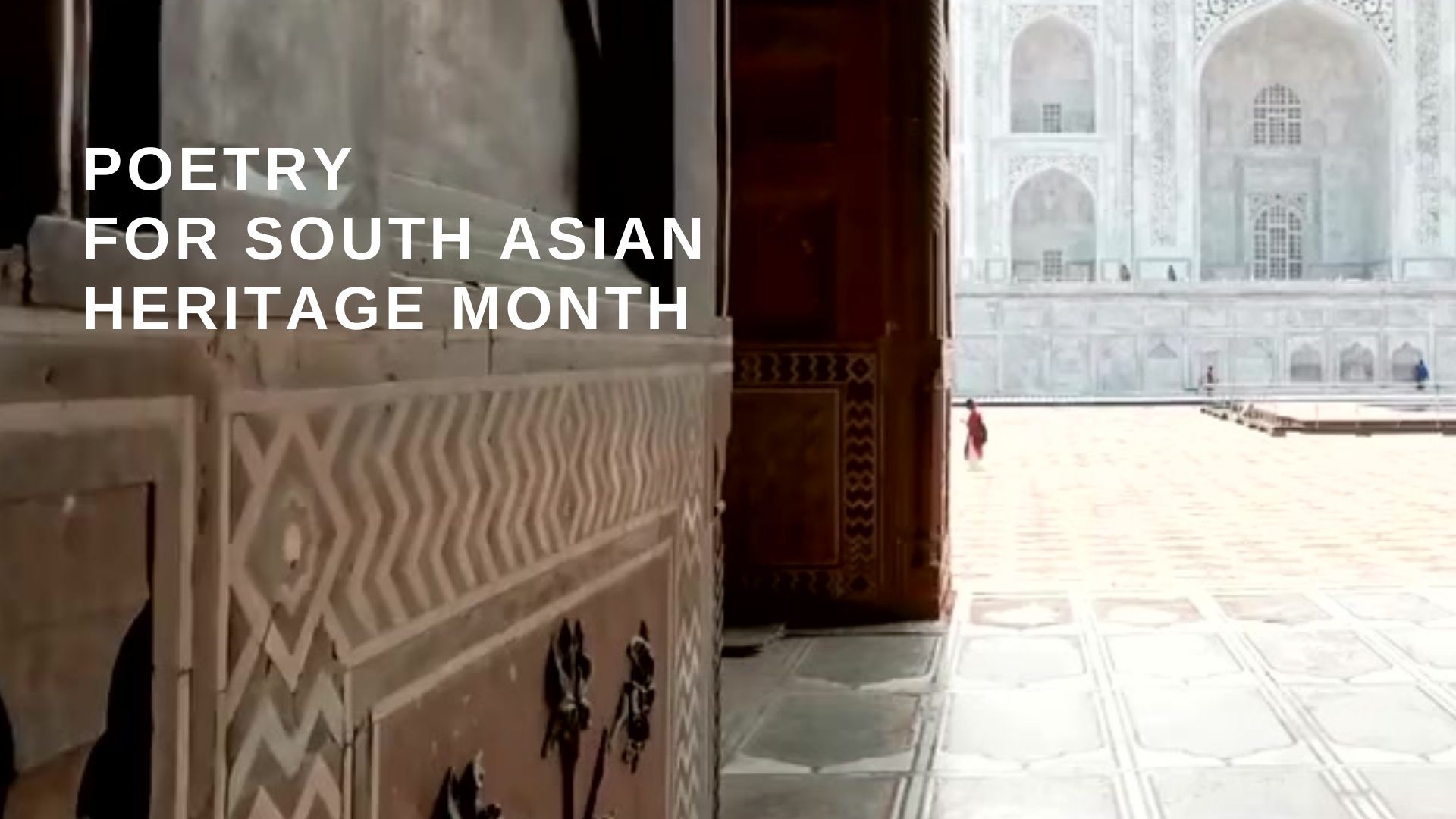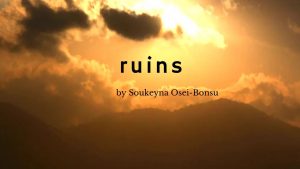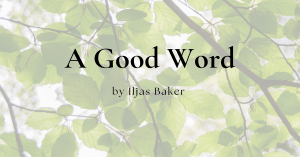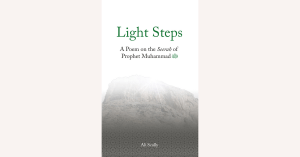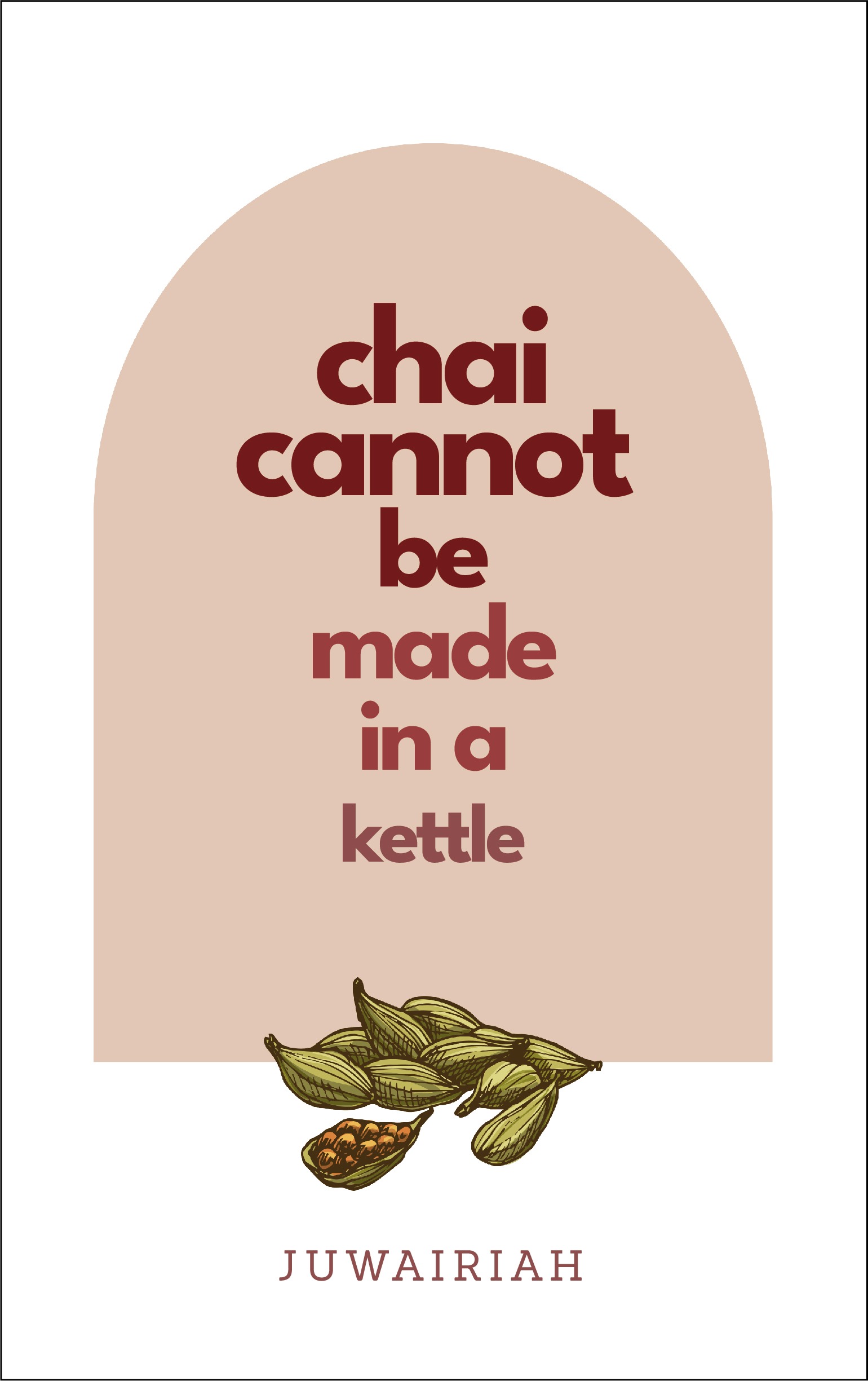
chai cannot be made in a kettle
In chai cannot be made in a kettle, Juwairiah speaks of belonging, straddling the gaps between cultures, outlooks and worldviews, and embracing the dissonance of her identity as a British, Muslim, Indian woman. Her verses explore the meaning of home as a multicultural and multilingual household. ‘Some mornings,/ I peep through the keyhole,/ watch her and her father converse in Swahili./ I do not understand their language so instead/ I watch her tongue dance.’
She writes about her connection to her faith and community, poignantly articulating the ways in which these are misunderstood, marginalised and commodified in modern-day Britain, and the verbal and cultural acrobatics involved in having an identity that bridges cultural and linguistic divides. ‘We surrendered syllables so that we would fit in,/ muted rhymes and rhythms so we weren’t booted out.’
Scents and flavours evoke a lost heritage in many of the poems in chai cannot be made in a kettle. The rituals of community and faith create a background rhythm to Juwairiah’s poems, the ache of a wistful collective memory interacting with the everyday liminal realities of life as a British Indian woman: ‘I heard whispers of brown sacred women,/ who lay under darkness, longing for their motherland./ A place where bodies bathe in sweet honey milk,/ doused in ancient cardamom pods.’.
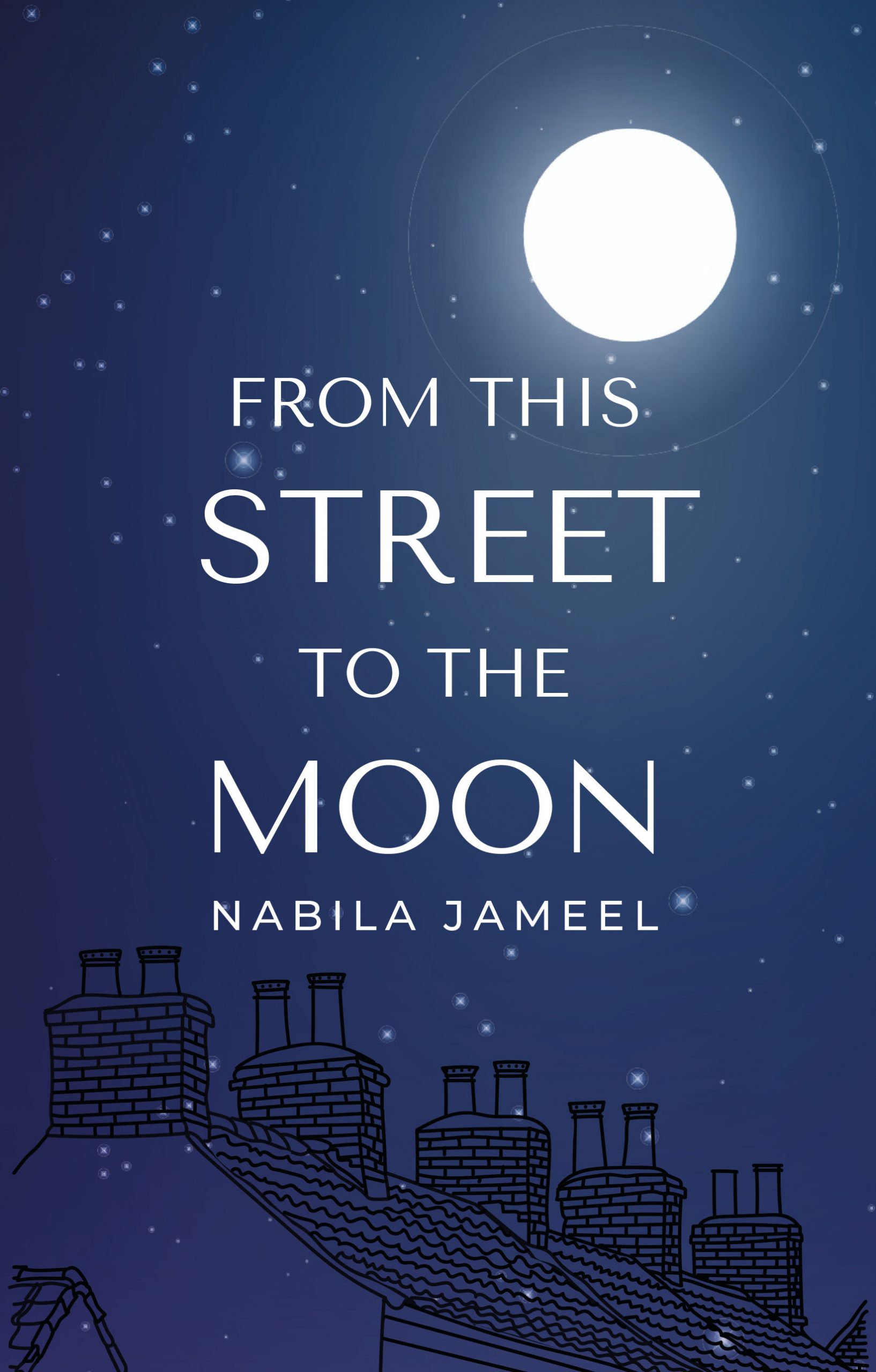
From this Street to the Moon
Exploring the dynamics of growing up in a working class family in a northern town, Nabila Jameel takes us on a journey through life in England, coloured with visits to Pakistan. From this Street to the Moon is a feast for the senses, filled with sumptuous details and mesmerising descriptions of everyday activities, evoking both raw and tender moments, from hastily devouring mangoes in the summer heat of Pakistan -
Chilled mangoes were meals in the sticky heat
of monsoon summers: we giggled as the juice trickled
through our fingers down to our feet.
to a day out in Blackpool -
Our parents took us every summer.
Five of us packed in the back
of the Cortina, without seatbelts.
Dad: wearing a well pressed shirt,
mum: bride-like, adorned with gold.
In her verses the reader can almost smell the roti as it is freshly made over an open fire, or feel they are standing on the roadside as 'A Vespa stutters past/ and then a rikshaw, heavy with loud women.' From a child's eyes we are able to feel the joy and freedom of bathing in the back yard - 'We sat towel wrapped in the sun and shivered/ while droplets fell onto our flip flops./ Smiles were bigger than our house', and sense the fatigue of her hard-working parents when her father 'comes home tired/ hands the crispy wage packet to mum/ eats in haste and falls asleep as if he's drugged.'
In her unflinching social commentary Jameel explores the harsh realities of society: poverty, abuse and misogyny. Racism and identity are explored through the discomfort of being a foreigner in an ancestral homeland while facing both overt and subtle racial abuse in the UK.
There's a pile of BNP leaflets in my porch -
they've been dropping through my letterbox all week.
Whether describing the process of starching a shalwar kameez, buying tins of baked beans in a bazaar in Hayatabad, or highlighting uncomfortable social and cultural undercurrents, Jameel's words are vivid and evocative, taking us on a journey with her as we travel through prominent milestones in life, experiencing the highs and lows, while navigating between two cultures. Grief and loss are intertwined with and explored through culture and spirituality -
You're in the sun lowering itself to sleep.
You're in your teacup I'm drinking from.
You're even in the kitchen:
hospital appointments marked
on the calendar, now obsolete.

